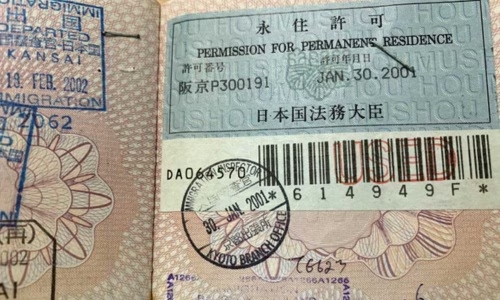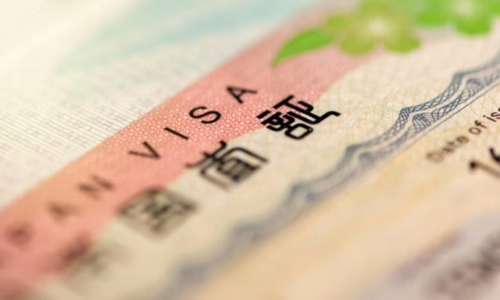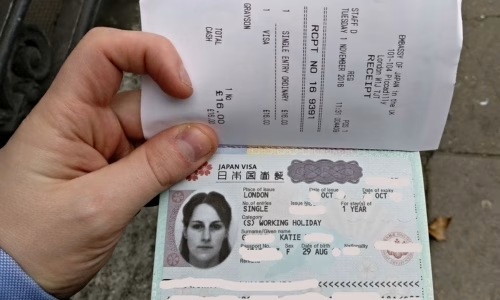Employment opportunities in Japan are growing thanks to its strong economy, safe lifestyle, and need for skilled workers. From teaching and IT to finance or hospitality, foreign professionals can find diverse career paths by understanding visa options, hiring trends, and the job market
Popular Industries Hiring Foreigners in Japan
Japan continues to experience labor shortages, leading to growing demand for international workers across several industries. If you’re considering a job in Japan, here are key fields that frequently recruit foreign professionals:
- Information Technology (IT): Tech roles are widely available, especially in cities like Tokyo, Osaka, and Fukuoka. Companies are hiring for positions in software development, cybersecurity, and AI. English-speaking IT specialists with programming or data skills are highly valued.
- Education: Teaching English remains one of the easiest entry points for foreigners. Jobs are offered in public schools, private language centers, and universities. Many roles don’t require Japanese fluency, though teaching certificates can improve your chances.
- Engineering: Japan’s need for skilled engineers remains steady. Fields such as mechanical, civil, and electrical engineering frequently post openings. Experience in manufacturing, infrastructure, or technical design is a plus.
- Healthcare: Japan is gradually opening up to foreign caregivers, especially through government-supported visa programs. Demand is rising due to the aging population, with roles for nursing assistants and healthcare workers expanding.
- Hospitality and Tourism: Hotels, travel agencies, and restaurants often seek bilingual staff. As tourism rebounds, service roles, especially in major cities and tourist areas, are becoming more accessible to foreigners.
- Finance and Business: Multinational companies and banks are looking for professionals in accounting, consulting, and business development. Being fluent in English and having a good command of Japanese (JLPT N2 or above) gives candidates a competitive edge.
Pro tip: Learning Japanese and tailoring your resume to local expectations can significantly increase your job prospects. Online platforms like GaijinPot Jobs or Daijob are useful starting points.
Overview of Employment-Based Visas in Japan
If you’re planning to build a career in Japan, obtaining the appropriate visa is a crucial first step. Japan offers various work visa types tailored to different industries, qualifications, and employment situations. Choosing the right one not only determines your eligibility to work but also impacts your long-term residency options. Let’s explore the most commonly used work visas for foreigners seeking employment in Japan.
Work Visa for IT, Marketing, and Global Services Professionals
This visa category is one of the most flexible for foreign professionals and is widely used across industries. It applies to individuals working in fields such as IT, business administration, marketing, translation, education (especially at private schools), and international relations. To qualify, applicants typically need to hold at least a bachelor’s degree or demonstrate several years of relevant professional experience. Many foreign companies and Japanese firms hiring globally-minded staff sponsor this visa, making it a popular choice for office-based roles.

Japan’s Visa for Certified Workers in Essential Fields
Introduced to counter labor shortages in specific sectors, the Specified Skilled Worker visa is divided into two types. SSW Type 1 allows foreigners to work in 12 industries, including caregiving, construction, agriculture, shipbuilding, and food service. It usually requires a skills test and basic Japanese language ability (JLPT N4 or equivalent). SSW Type 2, intended for more advanced positions, is currently limited to a few fields like construction and shipbuilding but offers the possibility of bringing family and applying for permanent residency. This visa suits individuals looking for hands-on work in industries with high demand for workers.

Instructor Visa
The Instructor Visa is ideal for those teaching languages or academic subjects at public schools, including elementary, junior high, or high schools. Most applicants enter Japan through government-sponsored programs like the Japan Exchange and Teaching (JET) Program or by applying directly to local boards of education. Unlike the “Engineer / Humanities” visa, which covers private institutions, the Instructor Visa is specifically for public sector education. A university degree and fluency in English are usually required, along with a professional demeanor and willingness to engage with Japanese students and culture.
Japan’s Work Permit for Top-Tier Experts
This visa is part of Japan’s strategy to attract experienced, top-tier global talent. It operates on a points-based system, rewarding applicants for qualifications, income level, professional experience, and Japanese language ability. Fields like research, engineering, academia, and senior-level business management are typically eligible. One of the main advantages of this visa is the fast-track to permanent residency, often in just one or three years, along with privileges such as longer visa terms, priority at immigration, and the ability to sponsor family members. It’s a strong option for professionals looking to settle long-term in Japan.

Working Holiday Visa
This visa is perfect for young adults (usually aged 18 to 30) from countries that have bilateral agreements with Japan. Unlike traditional work visas, the Working Holiday Visa is designed to allow cultural exploration while permitting temporary jobs to support your stay. It’s often used for part-time work in hospitality, tourism, retail, and restaurants. While it’s not intended for long-term employment, it provides an excellent opportunity to experience everyday life in Japan, make local connections, and improve your language skills, all while earning an income.

Where to Find Job Listings
Landing a job in Japan has become more accessible with the rise of online platforms and dedicated support services for foreign professionals. Whether you’re seeking full-time employment, part-time roles, or industry-specific opportunities, here are some of the best resources to begin your search:
- GaijinPot Jobs: One of the most well-known job sites tailored to foreigners. It features a wide range of positions in education, IT, hospitality, and more, with many listings in English.
- Daijob: Ideal for bilingual professionals, this site focuses on jobs requiring Japanese and English language skills. Popular among those in international business, sales, and consulting.
- CareerCross: Specializes in roles within tech, finance, engineering, and senior-level management. A great resource for experienced workers with professional qualifications.
- Hello Work (Public Job Centers): Japan’s government-run employment service provides nationwide job listings. Some offices offer English-speaking support, and they often have postings not found on private websites.
- International Recruitment Agencies: Firms like Robert Walters, Hays Japan, and RGF Professional Recruitment assist foreigners with personalized job-matching services. These agencies are especially helpful for navigating corporate job markets and negotiating contracts.
What Employers Are Looking For
Beyond academic qualifications and professional experience, companies in Japan place strong emphasis on several key attributes when hiring foreign talent:
Japanese Language Proficiency
Language skills can significantly influence job prospects. Many roles require a JLPT N2 level or higher, particularly in customer-facing or team-based environments. However, some positions, especially in tech or international firms, may accept N3 or provide opportunities to work in English-speaking teams.
Understanding and Adjusting to Japanese Work Culture
Understanding Japanese workplace culture is essential. Employers value individuals who demonstrate respect for hierarchical structures, group harmony, and business etiquette, such as punctuality and professional communication. A willingness to integrate into team dynamics is often just as important as technical skills.
Long-Term Plans to Settle and Work in Japan
Stability is important in the Japanese job market. Many companies prefer candidates who plan to live in Japan long-term, as frequent turnover can disrupt workflow and training processes. Demonstrating your interest in building a career and life in Japan can boost your chances of getting hired.
Income Standards and Workplace Dynamics in Japan
When working in Japan, it’s important to understand both salary expectations and the country’s unique workplace environment. On average, foreign professionals earn between ¥3 million and ¥8 million per year, depending on their industry, qualifications, and level of experience. Fields like IT, engineering, and finance often offer higher salaries, especially in major cities such as Tokyo and Osaka.
In terms of work culture, Japan emphasizes punctuality, team harmony, and a strong sense of responsibility. Employees are expected to be reliable team players who contribute to group success. While overtime work remains common in some industries, there is a growing shift toward more flexible schedules and improved work-life balance, especially among international companies and startups aiming to attract global talent.
Smart Approaches to Finding Employment in Japan
To increase your chances of getting hired in Japan, it’s important to tailor your approach to local expectations. Start by customizing your resume, many employers prefer the traditional Japanese rirekisho format, so be sure to follow this structure when requested. Present skills and experience that demonstrate your suitability for the role.
If you have international experience, highlight it clearly. Japanese companies, especially those in sectors like IT, consulting, and global marketing, often value candidates with a global mindset and cross-cultural communication skills.
When it comes to interviews, proper etiquette is essential. Dress professionally, arrive on time, and speak politely, whether your meeting is in person or online. Demonstrating cultural awareness and respect can make a strong impression and set you apart from other candidates.
Conclusion
Employment opportunities in Japan offer professionals the chance to build rewarding careers in a dynamic economy. With the right skills, visa, and cultural understanding, foreign job seekers can access diverse roles and thrive. Researching job sites, learning Japanese, and adapting to local work culture are key steps to succeed.






Leave a Reply